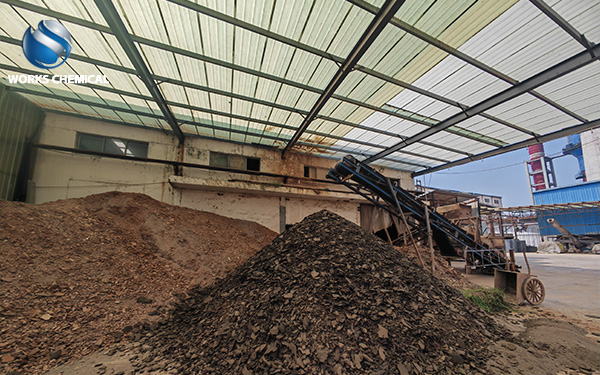
The problems of long sludge feeding time and slow filtration dewatering efficiency can be solved from the following aspects:

I. Optimization of sludge treatment process
Identify the cause:
First of all, it is necessary to find out the specific reasons for the long sludge feeding time and the slow filtration dewatering efficiency. It may be a change in sludge concentration, improper addition of agents, equipment failure or improper operation.
Adjust sludge concentration:
If the sludge concentration is too low, it will increase the feed time and reduce the efficiency of press filtration dehydration. Therefore, the sludge concentration can be increased by adjusting the sludge thickening process, thus shortening the feed time and improving the dehydration efficiency.
Reasonable addition of medicine:
The addition of chemical agents has an important effect on the dewatering performance of sludge. According to the characteristics of sludge and treatment requirements, the appropriate type and dosage of chemicals should be selected. Avoid the deterioration of sludge properties or equipment blockage caused by excessive dosing.
Two, optimize the filter press equipment parameters
Select the right filter cloth:
The type and performance of filter cloth have a great influence on the efficiency of filtration dehydration. The appropriate filter cloth material and air permeability should be selected according to the characteristics and treatment requirements of the sludge. Clean the filter cloth regularly to prevent clogging and wear.
Adjust press pressure:
Press pressure is one of the key factors affecting the efficiency of press filtration dehydration. The size of the pressing pressure and the pressing time should be adjusted according to the characteristics of the sludge and the performance of the equipment to achieve the best dehydration effect.
Optimized operation process:
By adjusting the operation process, such as first back blowing and then pressing or first pressing and then reverse blowing, you can further improve the efficiency of press filtration dehydration. At the same time, check and maintain the device regularly to ensure the normal operation of the device.
Three, strengthen sludge management
Regular monitoring of sludge properties:
Sample and analyze the sludge regularly to understand the changes in the properties of the sludge, such as moisture content and organic matter content. According to the analysis results, timely adjustment of treatment technology and dosage of chemicals.
Reasonable control of sludge reflux:
By adjusting the sludge reflux rate, the residence time of sludge in the system can be controlled, thus affecting the dewatering performance of sludge. The sludge reflux rate should be controlled reasonably according to the actual situation.
Iv. Introduction of new technologies and equipment
High efficiency filter press:
High efficiency filter press has a higher press pressure and better dehydration effect. The introduction of an efficient filter press can be considered to improve the dewatering efficiency of the sludge.
Introduction of automatic control system:
The automatic control system can monitor the parameters in the sludge treatment process in real time, and automatically adjust them according to the actual situation. This can not only improve the efficiency of sludge treatment, but also reduce energy consumption and labor costs.
In summary, to solve the problem of long sludge feeding time and slow filtration dewatering efficiency, it is necessary to start from many aspects. By optimizing the sludge treatment process, optimizing the parameters of filter press equipment, strengthening sludge management and introducing new technologies and equipment, the efficiency of sludge treatment can be significantly improved and the cost of treatment can be reduced.